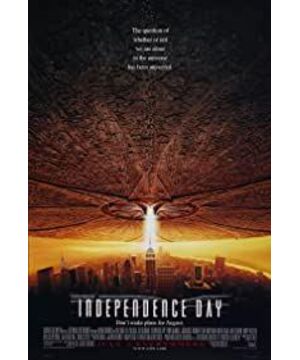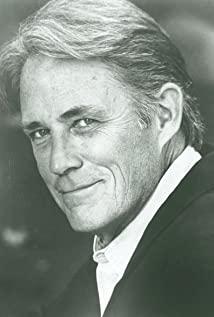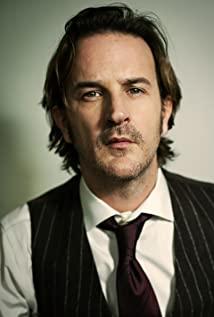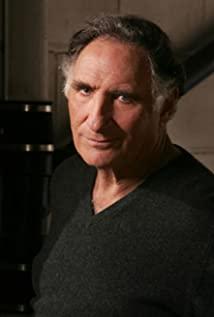It's too complicated. In my opinion, the so-called good movies can basically be divided into three categories: smart movies, skilled movies, and smart movies. It doesn't matter whether they are commercial films, inspirational films, literary films or independent productions.
"Slumdog Millionaire" is probably a clever movie. This kind of film knows how to make things easy, that is to say, knowing how to hit people’s pain points and cute points, can arouse the audience’s emotions and thinking to the greatest extent, may pretend to be compelling but not pretend to cause disgust, and may discuss the philosophy of life but It is not enough to confuse the director and the screenwriter. It may focus on realistic issues but not cruel enough to suffocate the audience. It may be deep but also very interesting. At the same time, it often uses the narrative structure and the perspective of the characters to make articles. There was another typical film of this type a few years ago, that is, "Crash". But clever movies often appear ingenious and insincere.
I don’t need to say more about wise movies. Someone from this new wave of Skeena can name a lot. Wisdom movies are not necessarily easy, and they don't want to touch the G-spot of the audience, so they may not be very popular.
The next category is my favorite: skilled movies. Such movies often overlap with the scope of smart movies, but not necessarily, because such movies often appear in commercial blockbusters. They have never thought of pretending to be force and discussing the philosophy of life, so they are often despised by high-end moviegoers. It is denounced as having no soul and no connotation.
Well, they are commercial blockbusters, but they must be commercial.
"Independence Day" is the leader in this genre.
In terms of business model, film narrative, and telling a fascinating story, "Independence Day" is almost impeccable. In addition to special effects, it has more brilliance. The connection and transformation of the plot, the rhythmic control of Zhang Youchi, and the shaping of the portraits of the characters are all better than most movies nowadays. At this point, it can completely put Lao Si's "World War" underfoot.
Especially commendable is the characterization in the movie. In the two-and-a-half-hour movie, almost every character on the stage has a vivid personality, an environmentalist scientist who loves airsickness, his ex-wife of a strong career woman, his verbose dad, a domineering black pilot, he A glib wingman aviator friend, a cheerful and capable striptease girlfriend, a positive character typical of a president who is both benevolent and brave (of course this is too comprehensive), the slick Secretary of Defense, an old general, incompetent and incompetent. He has become a heroic pesticide sprayer. He is always impressed by his angry son, the neurotic alien research expert, and even the rigorous young colonel who has almost no lines. You see, I haven't watched this movie in N years, and I still can tell the personality and attitude of each of them.
This movie is smart because it knows how to use some finishing touches to outline the personality of the characters, make them rich and vivid, and do it calmly, naturally and appropriately. The dialogues with the organic front, the small movements, and the reactions of the people around them are all used very cleverly and well, and they also fill up the gaps in the plot, making the turning point flexible. For example, a scientist loves the earth, protects the environment, and opposes smoking. When his boss classifies trash into the wrong category, he will talk about it for a long time. So later he drank and made troubles in the base, littering, and the audience clearly realized that he was. Desperate.
Not to mention it is easy to do. For examples of failure, please refer to this year’s Oscar winner Danny Paul’s sci-fi masterpiece "Project Sunshine". In this film, I tried hard to present a group of flesh-and-blood scientists, but the whole film became procrastinated, full of chattering and incomprehensible. Not to mention a few doomsday comets crashing into the earth after Independence Day movies, as well as wall-to-wall works like King Arthur. Except for a few protagonists, other supporting roles are treated worse than soy sauce, because their only role is to be responsible. Talk nonsense to promote the development of the plot and scream to tell the audience that the current situation is critical. It may be that the character is about to die before the movie hurriedly let the character say a few words like "I'm going back to my hometown to get married" abruptly and shyly. Understand that first he is not an active character background card, and second he will soon receive a lunch box.
Therefore, this proficiency in bridge sections and techniques also reflects the director's respect for the audience's IQ.
Don't tell me that this technique is very commercial and superficial, lacks the depth of humanistic care and so on. Most of the films flaunting humanistic care and the depth of humanity are artificial and clumsy. The success of "Independence Day" is not without its reason, at least before despising its commercial nature and the spirit of "American savior" it promotes, its skillful techniques should be carefully studied. Before expressing thoughts and depth, you must at least know how to express them. Before making a story great and profound, you must at least know how to tell a story well and familiarly.
Can't help but plagiarize Reinhardt again:
Don't learn from masters, masters cannot be learned. Learn to tell a story and create characters smartly like Independence Day, at least not to make your movies and novels look boring.
View more about Independence Day reviews











